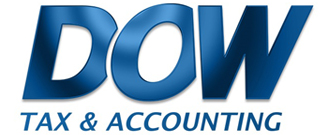TAX PLANNING
We are accepting new clients for the new Tax Season!
Who Needs Tax Planning
None of us wants to pay more tax than required by law. You’ve probably read or heard of various tax deductions or credits, but how do you know which ones are legitimate and whether they actually apply to you? Instead of taking the time to study the tax code, treasury regulations, and court cases, as well as take regular courses to learn how to apply them, just talk to someone who already has, who can answer your questions and provide solutions for your situation.
If you share some of these questions, have others, or just don’t know where to start, contact us to see how you can keep more of the money you earn.

Pricing
Tax Consulting
$240/hour
(New clients 1 hr minimum and appointment must be prepaid)
New Business Consulting

What Is Tax Planning?

How Tax Planning Works
Tax planning begins by estimating your tax liability for the coming year and considering your overall financial goals and objectives. Based on this analysis, a tax planner will make recommendations for changes to your financial situation that will help you reduce your tax bill.
This might include things like maximizing your deductions, taking advantage of tax credits, and considering different tax-saving strategies, such as tax-deferred investments or changing your business structure.
Tax planning is an ongoing process that should be reviewed and updated regularly, especially in light of changes in your personal or business situation, or changes in tax laws and regulations.
With us helping you with tax planning, you can ensure that you’re taking advantage of all available tax-saving opportunities and that you’re in compliance with all relevant tax laws.
Limiting Taxable Income
One of the key objectives of tax planning is to minimize taxable income. Taxable income is the amount of money you earn that is subject to income tax. By reducing taxable income, you can lower your tax bill and keep more of your money.
There are several ways to reduce taxable income, including maximizing contributions to tax-deferred retirement accounts, utilizing tax-free investment options, and deferring income to a later tax year.


Taking Advantage of Tax Credits
Tax credits are subtracted directly from the amount of taxes you owe, making them more valuable than deductions. Tax planning helps you identify tax credits you are eligible for and take advantage of them.
Some common tax credits include the earned income tax credit, the child tax credit, and education tax credits. By taking advantage of tax credits, you can significantly reduce your tax bill and keep more of your hard-earned money.
Increasing Number of Tax Deductions
Tax deductions are expenses that you can subtract from your taxable income to reduce your tax bill. The more deductions you claim, the lower your taxable income and the lower your tax bill.
Tax planning helps you identify all the deductions you are eligible for and make sure you are taking advantage of them. Some common tax deductions include mortgage interest, charitable contributions, medical expenses, and business expenses.

Why Do Tax Planning?
Minimize Tax Liability:
Avoid Tax Penalties:
Improve Cash Flow:
Better Financial Planning:
Business Advantages:
Tax planning can also help you stay compliant with tax laws and regulations, which can protect your business from costly penalties and legal issues.
If you want to stay on top of inflation and tax season, tax planning is one of the best ways you can do exactly that. Tax planning can help you maximize the amount of money you can keep and continue to invest in yourself and your business.
Tax-Saving Strategies
Some examples of common questions we get asked are below. Many of the answers are, “it depends,” meaning there are tax planning opportunities, which can turn into savings if implemented the right way and at the right time.
Frequently Asked Questions
Medical Expenses
Are medical expenses deductible? What about mileage? Are my insurance premiums deductible if they’re not through my employer?
Business Entities
Should I form an LLC? How does that affect my taxes?
Business Use of Home
When can you deduct it? Should you use the traditional method or the simplified method?
Charitable Donations
Hiring Family Members
Employer Expenses
If I have job expenses that aren’t reimbursed, what and how much can I deduct?
Mileage
Meals and Entertainment
Self-employment Taxes
Real Estate
When should I do a like-kind exchange? When is my income taxes at capital gains rates vs. ordinary tax rates? How does depreciation work?
Travel Expenses
Can I deduct my trip if I conduct business? What expenses are deductible? Can I use per diem rates to deduct more than I even spent?
Retirement
Business Entities
Should I form an LLC? How does that affect my taxes?
Business Use of Home
When can you deduct it? Should you use the traditional method or the simplified method?
Charitable Donations
Hiring Family Members
Employer Expenses
If I have job expenses that aren’t reimbursed, what and how much can I deduct?
Medical Expenses
Mileage
Meals and Entertainment
Real Estate
Retirement
Self-employment Taxes
Travel Expenses
 HOURS
HOURS
Tax Season (January 15 – April 15)
Monday-Friday
9:00 am – 5:00 pm
Off Season (April 16 – January 14)
Monday-Thursday
10:00 am – 4:00 pm
